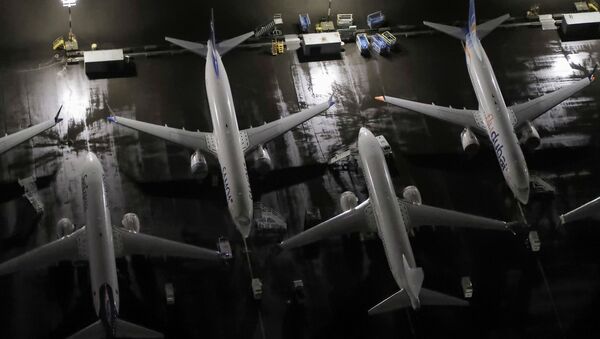The FAA announced Friday that Boeing’s negligence in airworthiness certification and installation of subpar aircraft equipment may result in a total of $3,916,871 in civil penalties from the federal government.
According to the administration, slat tracks processed by Southwest United Industries (SUI) on June 29, 2018, and shipped to Spirit AeroSystems Inc. were ultimately delivered to Boeing for installation on its 737-series aircraft, despite the components failing a strength test.
“Slat tracks are located on the leading edge of the wings of a Boeing 737 and are used to guide the movement of panels known as slats,” the release explained. “These panels provide additional lift during takeoff and landing.”
The FAA claims that Spirit AeroSystems notified Boeing “on or about” September 11, 2018, that the slat tracks in question had failed a quality test that detected traces of hydrogen embrittlement.
Despite this notification, Boeing is alleged to have declared the airworthiness of approximately 48 737s equipped with said slat tracks from August 16, 2018, through October 9, 2018. An additional 85 aircraft bearing the components were certified between October 10, 2018, and May 2, 2019.
Back in June, Sputnik reported that the FAA had identified potential issues with some 148 slat tracks that would require their replacement in the affected aircraft. Days later, the administration issued an Airworthiness Directive and mandated inspections based on the parameters laid out in a previous service bulletin.
“The FAA alleges that identification of the defective parts was hindered because SUI did not apply a protective coating over the part identification mark that is required to be displayed on the slat tracks,” read the FAA statement. “As a result, those part identification marks became either obscured or invisible, making it difficult to identify the affected parts.”
The potential multi-million dollar payout is just one of the many issues to plague Boeing recently. Two deadly accidents in October 2018 and March of this year resulted in the deaths of 346 people and led to the worldwide grounding of Boeing’s 737 Max jet.
Earlier this year, The Verge estimated that Boeing had earmarked more than $5 billion to cover airline reimbursement fees related to the 737 Max’s grounding alone. As for the victims’ families, it was estimated that the aircraft maker had set aside $100 million to cover compensation costs.
In addition to the FAA issuing a number of reports reiterating that the 737 Max has not yet been approved to return to the skies, Boeing has also taken hits from companies such as United Airlines, which recently decided to purchase 50 new Airbus aircraft and explore new options in the market rather than replace its aging Boeing fleet with newer models from the embattled company.
The FAA release concluded by noting that Boeing has a total of 30 days to respond to the notice of the proposed civil penalty.


